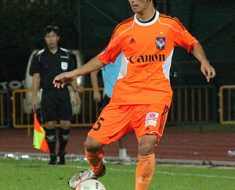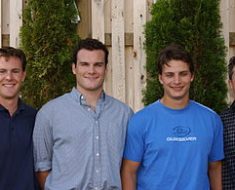
Garry Kimovich Weinstein net worth is $5 Million. Also know about Garry Kimovich Weinstein bio, salary, height, age weight, relationship and more …
Garry Kimovich Weinstein Wiki Biography
Garry Kasparov was born on 13 April 1963, in Baku, (then) Azerbaijan SSR, Soviet Union, of Armenian and Russian-Jewish descent. Garry is a chess Grandmaster, writer, and former World Chess Champion, arguably the greatest chess player of all time. From 1986 to 2005, he was ranked as the top chess player for 225 months; all of his efforts have helped put his net worth to where it is today.
How rich is Garry Kasparov? As of mid-2016, sources inform us of a net worth that is at $5 million, mostly earned through a successful career in chess. He still holds the record of 15 consecutive professional tournament victories, and became the youngest undisputed World Chess Champion at age 22. All of these have ensured the position of his wealth.
At a young age, Kasparov’s parents inspired him to try his hand at chess, and he would attend Young Pioneer Palace while training under Vladimir Makogonov, working on his positional skills and learning techniques such as the Caro-Kann Defence. Kasparov would go on and win two Soviet Junior Championships in a row while being trained under Alexander Shakarov. In 1978, he was invited to the Sokolsky Memorial Tournament, and became a chess master after winning the tournament. This tournament would cement Kasparov’s desire to fully pursue chess as a career, as he was the youngest player to qualify for the Soviet Chess Championship at the age of 15, and he then started to improve his ranking in the World Chess Federation. He would go on and win the high-class grandmaster tournament in Banja Luka during 1979, and the following year won the World Junior Chess Championship. He would become a Grandmaster later that year.
Garry would continue racking-up wins in tournaments such as the USSR Chess Championship and the 1982 Moscow Interzonal Championship. At 19 years old, he qualified for the Candidates Tournament, being already ranked number two in the world behind Anatoly Karpov. In 1984, he would become the number 1 ranked player in the world with a rating of 2710. A win against former world champion Vasily Smyslov led him to the top.
Anatoly Karpov and Kasparov would face in the World Chess Championship 1984, in which he trailed 4-0 in a first to six wins match. Kasparov started to turn the match around leading to 17 successive draws before he lost again at 5-0. He then led another series of draws before winning three games. With the score at 5-3 at 48 matches, the match was ended as a draw, to be replayed at a later date, despite the fact that the two players wanted to continue. This was the only time that a championship match was abandoned without a result. They eventually replayed in Moscow later in 1985, this time in a race to 12 ½ points for the World Championship. Kasparov would win with a score of 13-11, making him the youngest World Champion at the age of 22. After winning, the two were set to have a rematch because of the abandoned game and Kasparov would win a tightly close match at 12 ½ – 11 ½ despite accusations that his opening move was sold out by Evgeny Vladimirov. They would engage twice more in the next few years, with Kasparov retaining his title in a draw and winning a close match in 1990.
After some problems with FIDE, Kasparov created an organization called Grandmasters Association (GMA), including creating his own tournaments apart from FIDE. This led to a rift between the two organizations and resulted in chess having two major entities. Many tournaments were held during this period, and eventually Kasparov would lose his title to his student Kramnik without winning a single game. After losing his title, he would still go on and win numerous championships, eventually retiring from competitive chess in 2005. After chess, he focused mainly on books and politics.
For his personal life, it is known that Kasparov is a citizen of both Bosnia and Croatia. He was married Mascha with whom he has a daughter, then to Yulia Vovk(1996-2005) and they have a son, and has been married to Dania Tarasova since 2005 with whom he has two children. They reside in New York, but travel constantly.
IMDB Wikipedia $5 million 1963 1963-4-13 5′ 8½” (1.74 m) Aida Kasparova Album 61 (2013) Alexander Shakarov Anatoly Karpov April 13 Aries Azerbaijan SSR Baku Bobby Fischer Against the World (2011) Chess Grandmaster Daria Tarasova m. 2005 Game Over: Kasparov and the Machine (2003) Garry Kasparov Net Worth Garry Kimovich Weinstein Kim Moiseyevich Weinstein Klara Shagenovna Letter to Anna (2008) Make Up Department Polina Kasparova Russian Soviet Union Vadim Kasparov Vasily Smyslov Vladimir Makogonov Yulia Vovk m. 1996–2005
Garry Kimovich Weinstein Quick Info
| Full Name | Garry Kasparov |
| Net Worth | $5 Million |
| Date Of Birth | April 13, 1963 |
| Place Of Birth | Baku, Azerbaijan |
| Height | 5′ 8½” (1.74 m) |
| Profession | Chess Grandmaster |
| Nationality | Russian |
| Spouse | Daria Tarasova (m. 2005), Yulia Vovk (m. 1996–2005) |
| Children | Aida Kasparova, Vadim Kasparov, Polina Kasparova |
| Parents | Klara Shagenovna, Kim Moiseyevich Weinstein |
| https://www.facebook.com/GKKasparov | |
| https://twitter.com/kasparov63 | |
| https://www.instagram.com/gkasparov/ | |
| IMDB | http://www.imdb.com/name/nm0440716/ |
| Awards | Chess Oscar |
| Movies | Game Over: Kasparov and the Machine |
Garry Kimovich Weinstein Quotes
- Many strong chess players go on to successful careers as currency and stock traders, so I suppose there is considerable crossover in the pattern-matching and intuitive calculation skills required. But the aptitude for playing chess is nothing more than that. My argument has always been that what you learn from using the skills you have – analyzing your strengths and weaknesses – is far more important.
- One of the countless and endless debates around [Bobby] Fischer were whether his behavioral excesses were the product of an unbalanced yet sincere soul, or an extension of his all-consuming drive to conquer. He had his strong principles, but the predator in him was well aware of the effect his antics had on his opponents.
- Chess history is best viewed through the game’s evolution: the Romantic Era of the 19th Century, the Hypermodernism of the early 20th, the post-World War II dominance of the Soviet School. They hail from all over the world, as illustrated by current world champion Viswanathan Anand of India and young Norwegian Magnus Carlsen. I had the opportunity to train Carlsen in 2009, and his intuitive style conserves the mystique of chess at a time when every CP-enhanced fan thinks the game is easy. Carlsen is as charismatic and independent as he is talented. If he can rekindle the world’s fascination with the royal game, we will soon be living in the Carlsen Era.
- It was nothing to do about science. It was one zeal to beat Garry Kasparov. And when a big corporation with unlimited resources would like to do so, there are many ways to achieve the result.
- I have great energy and I have great tasks ahead of me. I want to serve chess through games, books that are works of art. I would like to bring the game closer to many people all over the world.
Garry Kimovich Weinstein Important Facts
- Chairman, “Human Rights Foundation International Council”.
- Founded United Civil Front, a social movement trying to prevent Russia from returning to totalitarianism.
- Retired from professional chess on 10 March 2005 due to his political ambitions.
- After holding the official FIDE World Chess Champion title from 1985 to 1993, he left the organization and founded the Professional Chess Association, whose World Champion he was until 2000.
- Is considered by many not only the best chess player in the world, but the best of all time.
- Fluent in both English and German.
- Noted for his phenomenal memory, Kasparov memorized thousands of chess games and matches.
- His parents had thought to teach him music, but one day at the age of 5 he suggested to them the solution to a chess problem they had been baffled by the night before. His mother, Klara, gave up her job to travel and work with him when he qualified for the World Championship. Chess expert Gabriel Schoenfeld once called Kasparov the “Mikhail Baryshnikov” of chess.
- Kasparov is pronounced kahs-PAH-rof. His father was named Kim Moiseyevich Weinstein, but died when Garry was seven, and the boy later adopted the Russian version of his mother’s Armenian maiden name, Kasparian.
- Born at 11:45pm-BAT
Garry Kimovich Weinstein Filmography
| Title | Year | Status | Character | Role |
|---|---|---|---|---|
| Late Night with David Letterman | 1991 | TV Series | Actor | |
| This Week | 2016 | TV Series | Himself – Powerhouse Roundtable Panelist | Self |
| Meet the Press | 2016 | TV Series | Himself – Russian Political Activist | Self |
| Le grand journal de Canal+ | 2012-2016 | TV Series documentary | Himself | Self |
| Magnus | 2016 | Documentary | Himself | Self |
| Fareed Zakaria GPS | 2016 | TV Series | Himself | Self |
| Sunday Morning Futures with Maria Bartiromo | 2014-2015 | TV Series | Himself – Panelist / Himself / Himself – Former Chess Grandmaster / … | Self |
| Real Time with Bill Maher | 2007-2015 | TV Series | Himself – Guest / Himself | Self |
| CNN NewsCenter | 2015 | TV Series documentary | Russian Pro-Democracy Activist | Self |
| Srok | 2014 | Documentary | Himself (uncredited) | Self |
| Cavuto on Business | 2014 | TV Series | Himself – Former World Chess Champion | Self |
| The Frost Interview | 2013 | TV Series | Himself | Self |
| Album 61 | 2013 | Documentary | Himself | Self |
| 60 Minutes | 2007-2013 | TV Series documentary | Himself – Chess Grandmaster (segment “Crackdown in Russia”) / Himself – Chess Grandmaster & Activist (segment “The Match of His Life”) | Self |
| Garry | 2012 | Short | Himself | Self |
| Zima, ukhodi! | 2012 | Documentary | Himself (uncredited) | Self |
| The Mind of a Leader I Based on Niccolò Machiavelli’s ‘The Prince’ | 2011 | TV Series documentary 2011 | Self | |
| Durch die Nacht mit… | 2011 | TV Series documentary | Self | |
| Bobby Fischer Against the World | 2011 | Documentary | Himself | Self |
| Chess History | 2011 | Video documentary short | Himself | Self |
| The Mind of a Leader II Based on Sun Tzu’s ‘The Art of War’ | 2011 | TV Series documentary | Self | |
| Skavlan | 2009 | TV Series | Himself – Guest | Self |
| Rude Tube | 2008 | TV Series | Himself | Self |
| Sunday AM | 2008 | TV Series | Himself – Leader, ‘The Other Russia’ Coalition | Self |
| Ein Artikel zu viel | 2008 | Documentary | Himself | Self |
| The Colbert Report | 2007 | TV Series | Himself – Guest | Self |
| The Sunday Edition | 2007 | TV Series | Himself | Self |
| The Sunday Programme | 2007 | TV Series | Himself | Self |
| Sabine Christiansen | 2007 | TV Series | Himself | Self |
| Beckmann | 2007 | TV Series | Himself | Self |
| Question Time | 2006 | TV Series | Himself | Self |
| The Prince of Chess | 2005 | Documentary | Himself | Self |
| Game Over: Kasparov and the Machine | 2003 | Documentary | Himself | Self |
| Lo + plus | 1997-2003 | TV Series | Himself | Self |
| Die Harald Schmidt Show | 2002 | TV Series | Himself | Self |
| Bioperfection: Building a New Human Race | 1998 | TV Movie | Himself | Self |
| Vremya lyubit i vremya nenavidet | 1994 | Documentary | Himself | Self |
| Late Night with David Letterman | 1989-1990 | TV Series | Himself – Guest / Himself | Self |
| American Gambit | 1989 | Himself | Self | |
| La lluna | 1989 | TV Series | Himself | Self |
| The bond of necessity | post-production | Archive Footage | ||
| Hypertelia | 2015 | Short | Himself | Archive Footage |
| New Day | 2015 | TV Series | Himself | Archive Footage |
| Hört die Signale | 2014 | TV Mini-Series documentary | Himself | Archive Footage |
| 60 Minutes | 2013 | TV Series documentary | Himself – Chess Grandmaster (segment “Crackdown in Russia”) | Archive Footage |
| Putins kys | 2011 | Documentary | Himself | Archive Footage |
| Rude Tube | 2010 | TV Series | Himself | Archive Footage |
| World’s Dumbest | 2010 | TV Series | Himself | Archive Footage |
| Timeshift | 2009 | TV Series documentary | Himself – Russian World Champion | Archive Footage |
| 80s | 2005 | TV Series documentary | Himself | Archive Footage |
| 2001: HAL’s Legacy | 2001 | TV Movie documentary | Himself | Archive Footage |




